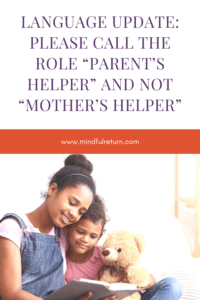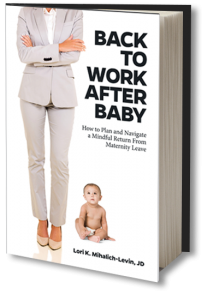 Language – the words we use both out loud and in our heads – shapes how we think about the world. As a lawyer, I have a probably deeper-than-average fascination with words. I’ve been trained to believe in the power of nuance. I love writing. And I’m an Oxford comma disciple.
Language – the words we use both out loud and in our heads – shapes how we think about the world. As a lawyer, I have a probably deeper-than-average fascination with words. I’ve been trained to believe in the power of nuance. I love writing. And I’m an Oxford comma disciple.
I also recognize that sometimes we just use words because they were handed down to us by our culture or community. We don’t think too hard about them. Or their origin, or actual meaning.
Take the request to “pick your brain,” for example. I’ve moved away from using this phrase, after recognizing that the emphasis of that term is on mining someone else’s resources (for free). Taking something for oneself. And doing so in a forceful way. (The image of someone extracting bits of my brain with some sharp tools is a hard one to shake!) There are better, kinder, ways to make such requests.
A Gender-Equality-Related Language Update
Today, I’m focusing on our use of the term “mother’s helper” in the popular lexicon. When I saw the following e-mail come across a neighborhood listserv a few weeks ago and watched my own blood start to boil when I read it, I knew I had to write about this.
Here was the note (with identifying information removed):
[Neighborhood Name] Looking for a babysitter (or two)?
Hi Neighbors,
Are you looking for a responsible, fun, babysitter or mother’s helper? Siblings A and B are two local teens available for hire.
[Information about the girls was detailed here.]
Both are available for babysitting/mother’s helper work on weeknights, weekends, and full weeks during the summer…
****

Let’s start with the positives. I appreciate the entrepreneurial spirit. And I’m all for tweens and teens learning about caregiving and earning some money.
But why is this role described as that of a “mother’s helper”? For the uninitiated, this “helper” role is meant to indicate that a parent will still be home and available. In contrast, acting as a full-fledged babysitter typically means the parents will be gone or working while the babysitter is taking care of the children.
When the role is described as a “helper” position who, exactly, is being helped? Yes, I know that in a majority of households, much of the domestic work and childcare often falls on women. (Queue the Fair Play Documentary, book, and cards for very helpful ideas on how to upend that untenable situation.) Obviously, this term has its roots in our gendered division of household labor. But along with its “primary caregiver” counterpart in many organizations’ parental leave policies, the phrase is outdated and needs to go.
When someone comes over to our house to help care for our children, they’re helping our household. They’re not just helping me, the mom. Implying that a caregiver is only helping a mother relegates dads to the insulting babysitter status, rather than full-fledged parent. It also continues to insinuate that the mother should be responsible for securing the outsourced help.
So update your language, please. “Parent’s helper” may not yet be a phrase that rolls off your tongue in quite the same way as the well-worn “mother’s helper.” But with practice, it will. I promise.
Forgive Yourself and Move On
“Oh no!” you’ve just whispered to yourself. “I’ve said “mother’s helper” before! Yikes! That’s not what I meant!”
It’s okay. I admit that I’ve made this mistake too. Now you know better and can do better. Forgive yourself. Move on. And go out and take these specific action steps, to help level the gender-equality playing field:
- Change your own use of this term from “mother’s helper” to “parent’s helper.”
- When you hear someone else use the term, gently offer them this substitute.
- Build tween and teen boys into your babysitting and parent helping bench. (We need to start de-gendering caregiving expectations from an early age.)
- Lobby your employer to get rid of the “primary” and “secondary” caregiver distinctions in parental leave policies.
Then, by all means, go out and recruit a bunch of these amazing parent helpers! I wrote about 3 benefits of hiring them here, when I was in the thick of raising two very small kiddos. I’m sure there are more than three benefits, too. Parent helpers truly saved us during that particular life stage, particularly on weekends.
Now, my own boys are 10 and 12 and are just starting to take on these roles themselves. (That, and cat-sitting!) And my husband is the full and 100% owner of our family’s babysitter Rolodex. One person at a time, one generation at a time, I am optimistic that we can indeed change traditional gender norms.
Want more practical tips on working parenthood? Check out my book, Back to Work After Baby: How to Plan and Navigate a Mindful Return from Maternity Leave


